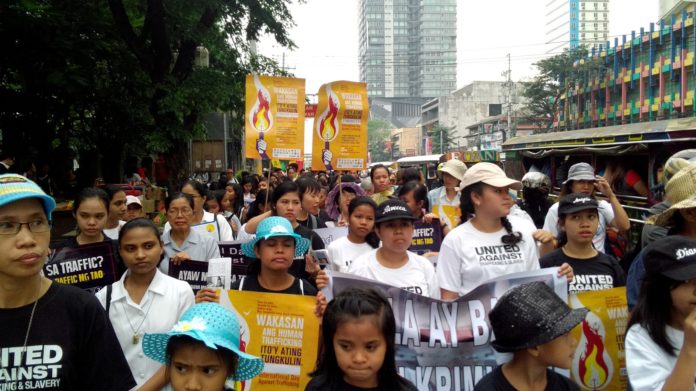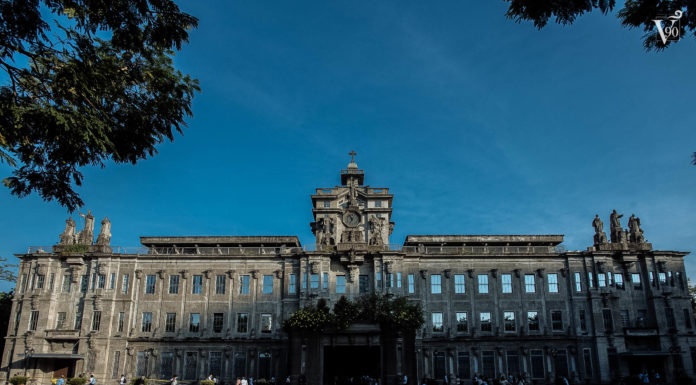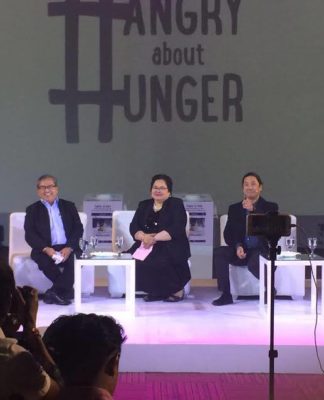
SAYING “children are not criminals,” religious and lay organizations held a prayer march to call for an end to human trafficking as well as oppose a bill lowering the age of criminal liability to 9 years old from 15.
The Association of Major Religious Superiors in the Philippines (AMRSP), joined by students from UST, Siena College and Santa Catalina College marched from España Boulevard to St. Anthony of Padua Shrine in Sampaloc, Manila to mark the International Day of Prayer and Awareness against Human Trafficking last Feb. 8.
Fr. Conegundo Garganta, executive secretary of the Catholic Bishops’ Conference of the Philippines Commission on the Youth, said law enforcement should be strengthened instead of amending the Juvenile Justice and Welfare Act of 2006 to lower the age of criminal liability.
“Ang krimen ay krimen ngunit mayroong mga pamantayan para tulungan natin `yung mga nalalagay sa ganong mahirap na sitwasiyon lalo na ang isang bata. Alam nating mayroong panahon kung saan hindi niya lubos na nagagamit `yung kanyang sariling isip o lakas para sa mga bagay na mayroong impluwensiya sa kaniyang gagawin o sa kaniyang pagpapasiya,” he explained.
Sr. Cecilia Espenilla, O.P., coordinator of Talitha Kumi Philippines, an international network of consecrated religious formed to counter human trafficking and a partner organization of AMRSP, cited the theme of the prayer march, “They are children, not criminals.”
“We support the Church’s stand not to lower [the age of criminal liability] but to help them (children) clarify their values to make them good citizens. They are like that because it was also the fault of adults,” she said.
House Bill 002 seeks to amend the Juvenile Justice Act. The bill’s author, Speaker Pantaleon Alvarez, argues that criminals have been using minors as accomplices, for example, as drug couriers, to escape prosecution.
Alvarez, however, has clarified that children convicted of crimes would be subjected to government intervention programs and won’t be mixed with adult prisoners.
Lawmakers are eyeing a compromise – setting the minimum age of criminal liability at 12 years old instead of 9.
Garganta also expressed his gratitude to government agencies helping to fight human trafficking. He said the Church should continue its role as “a mother protecting her children.”
“For the faithful who belong to the Church, [they should] make a stand [and] say no to all forms of human trafficking. Walang anumang dahilan para gumawa ang isang tao [ng aksiyon] na maging biktima niya ang kapwa niya tao para sa mga masasamang gawain,” Garganta said in an interview with the Varsitarian.
Espenilla said there is much work to be done by the Church and the government to end human exploitation.
“Definitely, the Church is strong and behind the fight against human trafficking. We have been working with them (the government), but it should not end there. We have to continue because much has to be done especially now that trafficking is now happening within families,” Espenilla said in an interview with the Varsitarian.
According to the International Justice Mission – Philippines, 80 percent of online sexual exploitation victims were children, half of them 12 years old or even younger. Twenty percent were adults.
















